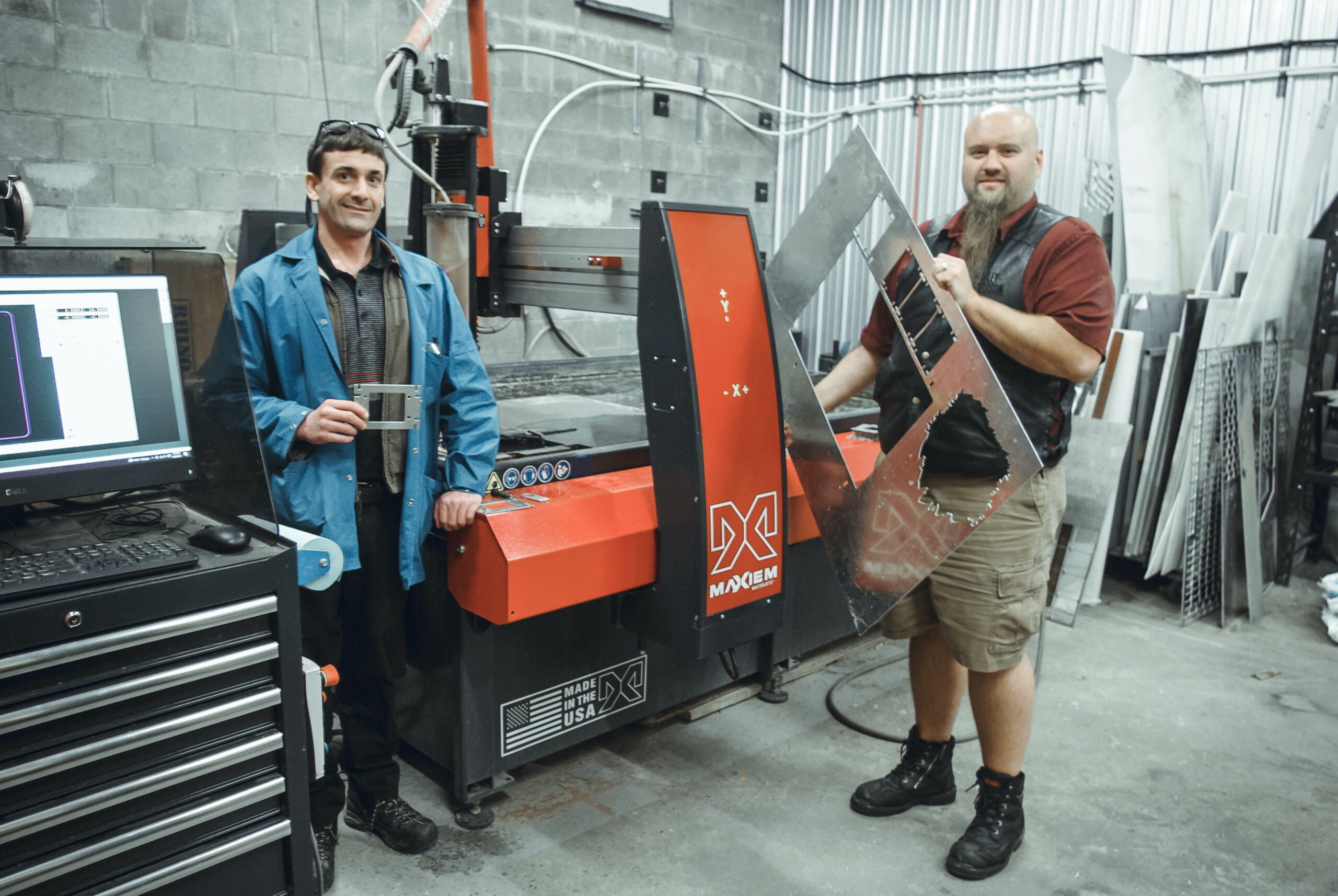
SMRT1 Technologies and the Selkirk Technology Access Centre (STAC) have teamed up to keep plastic waste out of our land fill and is another innovative example of local circular economy.
A Canadian smart vending technology company that launched out of Trail, B.C. is diverting plastic from the landfill and funnelling it into the Lower Columbia’s robust circular economy.
SMRT1 Technologies Ltd. has salvaged an abundance of plastic cutoff, demonstrating its position in Metal Tech Alley, a cluster of industrial and tech companies leading in sustainable economic development strategies.
Brad Pommen, aka “Mr. Technology,” is the founder and president of SMRT1, a hardware and software interaction and engagement technology startup with a touch vending machine product called the SMRT1 POD. Sporting a studded leather SMRT1 branded jacket, Pommen recently delivered approximately 800 lbs of UHMA (ultra high molecular weight polyethylene), an extremely tough and thick water-soluble plastic, to the Selkirk Technology Access Centre (STAC) for reuse.
The plastic, often used in the food industry, is now being repurposed by other local businesses working with the STAC, including Rossland’s gluten-free artisan bakery Alkeme, and Mountain Munchies, the Nelson-based company producing Enercheez, a dried crunchy cheese snack.
In exchange, the STAC is offering Pommen waterjet cutting time and scrap aluminum to reuse for parts. The trade feels like a homecoming for Pommen, who prototyped his smart vending solution there almost six years ago.
“We normally pay $100–150 an hour minimum for access to a waterjet cutter; it has a very specific use but it’s not a tool that my company can afford,” explains Pommen. “Having somewhere local that we can access is incredibly beneficial, especially as our production ramps up.”
Catering companies use the SMRT1 POD to sell food in a more convenient way, as do retailers in high foot-traffic areas like airports and universities. However, the company primarily serves community-based health providers, who recently committed to purchasing 100 SMRT1 PODs to provide instant HIV tests, COVID-19 tests, sexual health products, and harm-reduction materials like naloxone kits to vulnerable populations in highly accessible locations.
“We have 150 units that we’re set to deliver in the next 12 months, a volume and time frame that makes production expensive,” says Pommen. “However, because the plastic we no longer have use for is so valuable — it costs about $1,000 per sheet — STAC will easily be able to repurpose the material. In exchange, we’ll tap into machine time and materials, inadvertently funding SMRT1’s scale up.”
The STAC is one of 60 NSERC-funded Technology Access Centres across Canada. Working in conjunction with local industry, it helps businesses apply new technologies to workflows, prototype new designs, reverse engineer critical parts, and find advanced technology solutions and enhanced manufacturing processes. The STAC, run by Selkirk College, is also a teaching facility for Digital Fabrication & Design students, who work in the hands-on environment with guidance from Faculty Assistant Shawn Curran.
“We instruct students on critical thinking, problem solving, and creativity, asking them to consider reusing something instead of buying new material,” says Curran. “This curriculum prepares them to enter the workforce with the ability and mindset to lead industry.”
Metal Tech Alley Director Jacomien van Tonder says that the circular economy is a relatively new concept for most folks, and the goal is to create awareness from industry right down to small businesses.
“We need to start living within the boundaries of the ‘doughnut economy,’ and really try to understand what the earth is giving us and what we’re giving back,” she adds. “At the end of the day, it’s about keeping stuff out of our overflowing landfills.”
Metal Tech Alley is on a mission to gather stories from businesses rejecting the traditional linear economic model of produce, consume, discard in favour of the circular economy model, where companies shift to reducing, reusing, recycling, and recovering energy and materials to maximize their sustainable life cycle.
“Because we have such a strong industrial circular economy in this region, we feel more local small and medium-sized businesses can benefit from adopting this mindset,” van Tonder explains. “We’re here to support them and offer our expertise.”
Are you contributing to the circular economy or eager to start? Contact Metal Tech Alley: info@metaltechalley.com.